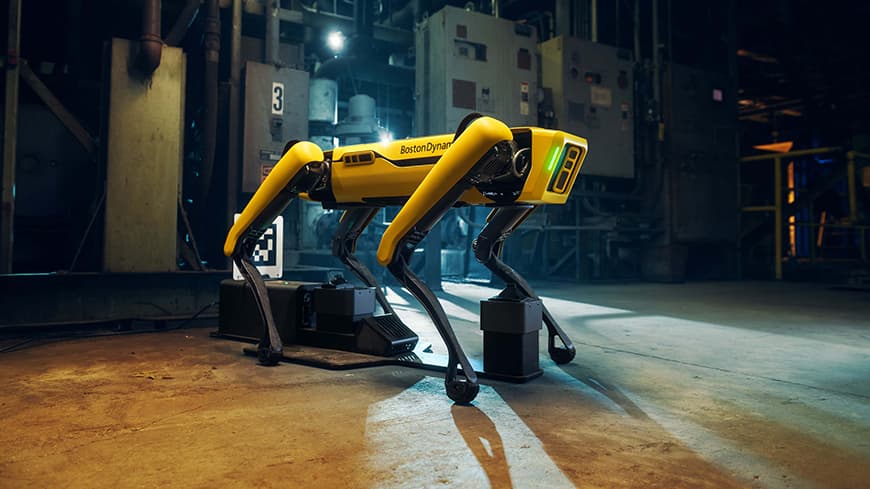
The State Government has awarded Edith Cowan University (ECU) scientists a $150,000 grant to work alongside leading Artificial Intelligence (AI) companies to design technology that teaches defence force robots to read hand gestures.
The team, led by ECU’s Dr Syed Zulqarnain Gilani, will include developers from robotics company Chironix, Augmented Reality provider Agili8, Rugged Technology Manufacturer Motium and researchers, including a cognitive scientist and a cyber security expert from the University of Western Australia.
“Optimising the present-day utility of robotics technology in the Australian Defence Force requires integrating robots into the human operating environment where they can be at least partially controlled by a human operator,” ECU’s Dr Gilani said.
The aim of the project is to replace remote controls, currently used by soldiers and to instead operate the unmanned machines with hand gestures.
The hand gestures will be recognised by a front-facing camera, installed within the AR glasses worn by the operator and will be transmitted over considerable distances to the robot.
Perth company Agili8 is responsible for developing the revolutionary XRAI Vision glasses to transmit hand gestures from human to robot over large distances.

“This use of AI and AR in the battlefield will improve responsiveness and reduce the cognitive load on the soldier and is only the beginning of the applications of this technology,” Chris Markovic Chief Technology Officer at Agili8 said.
Coming from a strong background in developing rugged hardware for the mining sector, Perth company Motium is excited to bring its expertise to the areas of security and defence.
“We are proud to be working with an innovative team on some really cutting-edge development for our frontline soldiers,” Business Development Manager Dieter von Mollendorf said.
According to developers, the technology is a natural progression in communication for soldiers on the frontline.
“There is a long pedigree of Australian soldiers using hand gestures to communicate silently with one another,” Dr Owen Carter, Principal Research Fellow at Chironix Robotics said.
“The last thing your average digger wants to do is stuff around with a robot remote control while getting shot at. Signalling to a robot with one hand while keeping your other hand firmly on your weapon is much preferred.”
Dr Zachary Howard, a cognitive scientist from The University of Western Australia, said that the technology significantly improves the quality of user experience when integrating robots into traditionally human teams and has the potential to reduce the cognitive burdens associated with current control systems.
The world-first project is expected to take a year and a half to develop, before being presented to the Defence Science Centre.
 The team developing the technology includes Dr Jin Hong (UWA), Dr Zach Howard (UWA), Alwyn Lloyd (Motium), Dr Zulqarnain Gilani (ECU), Chris Markovic (Agile8), Owen Carter (Chironix), Dieter Von Mollendorf (Motium).
The team developing the technology includes Dr Jin Hong (UWA), Dr Zach Howard (UWA), Alwyn Lloyd (Motium), Dr Zulqarnain Gilani (ECU), Chris Markovic (Agile8), Owen Carter (Chironix), Dieter Von Mollendorf (Motium).



